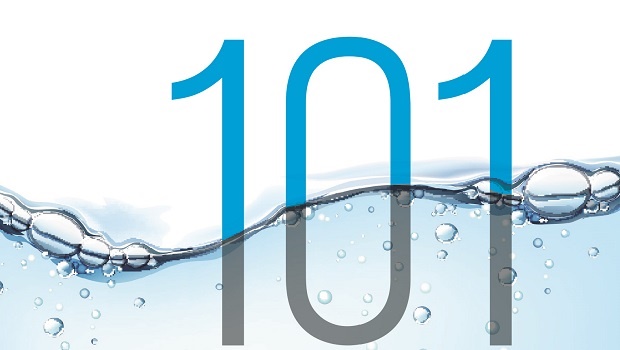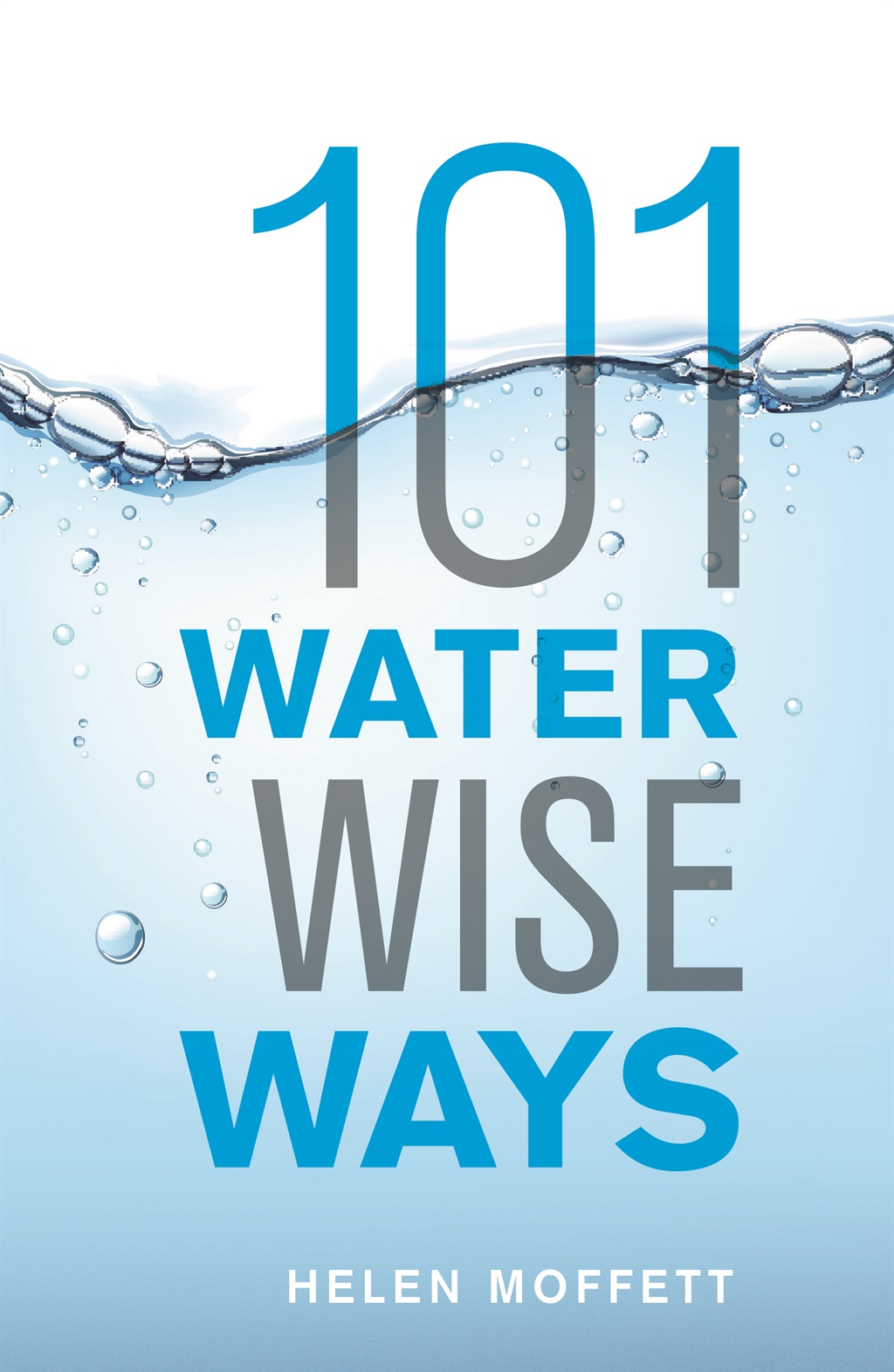
So, last night we got a down pouring of much needed rain in Cape Town. In fact, at one stage I remember being awake up for a few hours and not once did the rain let up. I’ve never experienced so much joy but it also got me thinking that while we’re finally heading into winter, and will hopefully with that, see more rain, there’s no excuse for us to stop saving water.
READ MORE: Has the water crisis turned you into a monster?
An author who has really been wonderfully proactive in her efforts to save water – and generous in sharing her amazing resourceful and creative water saving methods – is Helen Moffett. From blog posts that culminated into regular radio slots, Helen’s tips have been nothing short of remarkable.
She’s put her knowledge to use and compiled a beautiful 101 guide filled to the brim with tips that range from gardening and how to get your guests to save water, to getting communities and neighbourhoods to work together.
This tiny book makes a resounding splash.
Check out an excerpt, published with permission from Bookstorm on how to rethink your approach when it comes to eating spaces
(Scroll down to purchase a copy of the book):
Kitchens, cooking and food
The water crisis is a chance to rethink kitchens and cooking. I love cooking for friends, and have no intention of giving up parties and celebrations.
So how can we change our kitchens, our recipes and our entertaining habits so that we can go on having a life, spending time with friends and family, without feeling like collective water Grinches?
TIP 61
The biggest water-wise tip in the kitchen? Don’t. Waste. Food. Ever.
All food takes an astonishing amount of water to grow, clean, package and process. Leaving one egg uneaten on your plate represents a staggering loss of 196 litres of water (yes!!), according to the Institute of Mechanical Engineers.
Bonus tip: this also applies to food in restaurants. Ask for a doggie bag or take Tupperware along and insist that leftovers go into these to take home. (Do this just once, and your teen will never again take a single bite of a burger and then abandon it.)
Check out the lists of common foodstuffs and how much water each takes to produce on the resources page. You’ll immediately see that meat takes a truly spectacular amount of water to produce, pound for pound. This shows why an important long-term water-saving habit is to eat less meat, or to adopt a vegetarian or vegan lifestyle.
The good news is that tea, wine and beer take the least amount of water to grow and process. So put the kettle on.
TIP 62
The teabag tip at last, with thanks to the Teabag Elf: “I keep all used teabags to wipe dregs, oil, foodstuffs from plates, forks, pots, peanut butter bottles ... many kitchen items can be cleaned by wiping all food gunk off with one or two damp used teabags and then drying with one or two dried used teabags.
I’m uncertain about any bacterial health hazard but I have been doing it for a couple years now and (I think) I’m not ill or dead. I sometimes re-use the cleaned item (same plate and cutlery for several meals) or else let these wiped dishes pile up unstinkily and have a marathon dish-wash in as little water as possible.”
My friends in catering have all confirmed that this is by far the best method to get most grease off pots, pans and plates, also to mop up cooking-oil spills. And the teabags can go straight into the compost tub afterwards.
TIP 63
If you don’t already have a compost bucket in your kitchen for fruit and veg peelings, set one up now: this is where to scrape plates after meals. Empty this bucket regularly and sterilise it with bicarb, vinegar or Milton once a week.
READ MORE: 5 beauty routine changes that'll save Cape Town's water
TIP 64
Eat directly out of pots, pans and containers.
Allocate each family member a mug, glass, plate (for dry food, like toast) that they have to keep going as long as possible before washing. If a plate has to be washed, lick it first (the kids will love this, and the family dog will be glad to help out).
Do be sure to wash at a high temperature afterwards (see tip 58).
TIP 65
Have more braais.
Get your potjie into the action. Cook your food on the coals, then burn the paper plates and napkins afterwards.
TIP 66
Retire your goblet blender.
It takes way too much water to clean. Replace with a stick blender, which I use directly in the pot or whatever container I’m going to be eating from.
Proceed with caution: you want something narrow and deep to avoid spatter.
TIP 67
Retire your big pots.
Almost all my cooking is now done in non-stick frying-pans and saucepans.
Try to get ones with deep, steep sides. The magazines all say “get the best one you can afford”, but I’d rather recommend that you don’t buy the cheapest, in case the lining peels off the first time you use it.
Mine usually just get wiped after use and washed about every third time they’re used for cooking.
TIP 68
Remember the wok craze?
If you have one, dig it out and treat it as a non-stick frying-pan with high sides. It should be possible to clean all these utensils with teabags, kitchen paper and only then, if needed, a little splash of water and dishwashing liquid.
READ MORE: Hey Capetonians, waterless grooming is the new avo toast
TIP 69
Your partner in non-stick cooking and waterless clean-up is a whole bunch of silicone spatulas.
I got given an indestructible one from Le Creuset, and it gets used to stir everything during cooking, to decant food out the pot for serving, to get the pan as clean as possible, and to scrape the plates into the compost tub afterwards.
I have several cheap plastic ones as well, to make sure that containers have every bit of food residue cleaned out before washing.
TIP 70
Hunt down the best one-pot meal recipes: the days of a separate dish for cooking meat and three pots for the veggies, plus a gravy-boat, are done.
There are wonderful recipes for meals that combine protein, veggies and starch all in one pot: I typed “one pot meals” into Google and got “about 81 300 000 results”, so you are never going to run out of ideas.
Many of these are also budget meals.
TIP 71
Eat more raw food and finger-food.
TIP 72
If you have no objections to meat or alcohol, here’s Megan’s deglazing idea – add a splash of wine to fatty pans in which you’ve fried meat, and then gently rub the bottom with a spatula.
Reserve the resulting liquid for the next sauce you make.
TIP 73
Sticky bottoms: if you do have to wash a pan and the bottom is sticky, sprinkle a little of your magical all-purpose Swiss Army bicarb on the bottom, add the merest splash of water and let it stand for a while before giving it a gentle scrub.
Lifts off even burned-on milk or egg residue with no fuss.
TIP 74
Ditch the crockery. All over Indonesia and in many other tropical places, banana leaves are used as plates for even wet, soupy dishes – straight from the table to the compost heap afterwards.
There must be a business opportunity here (eyes the KZN coast).
READ MORE: #DayZero: What do women have to fear most during a water crisis?
TIP 75
In the absence of leaf plates (not everyone will be as enchanted by this idea as I am), here’s another way to serve guests food, especially at parties: bamboo “banana boats”.
Much sturdier and easier to handle than paper plates, they work for sit-down and stand-up eating, hold a good portion of even wet and messy foods without leakage, the sides prevent your falafel from leaping to freedom, and they can go straight into the compost heap at clear-up time.
See resources for where to purchase (you can get them online).
TIP 76
Compostable coffee-cups are a good option for workplaces where cups stack up in the communal sink. Take these home to dig into the garden or burn.
Add a few to your out-and-about basket to use in place of glasses.
TIP 77
Related to Tip 76 is the issue of garbage: if you’re used to composting and recycling, you need to head guests off before they start hunting for your rubbish bin.
When they offer to help clear up, ask them to scrape their plates into the compost tub.
TIP 78
A consideration for well-meaning guests: if your host has served you dinner on regular crockery, and you leap up and start stacking dirty dishes, someone will have to scrape and wash both sides.
Carry plates into the kitchen one by one instead. If space is limited, simply stand by and offer chocolates.
TIP 79
When having friends round, put out a basin of warm water with some fragrant bubbly handwash added.
You could use an old-fashioned jug and ewer set, and pretty handtowels. You’ll find that people will put down the salad or cake or whatever they’ve brought, and immediately look round for somewhere to wash or wipe their hands.
This also means everyone can wash their hands before eating or after using the toilet without going near a tap. Once this water is cold and the bubbles gone: more grey water for flushing.
WATCH: Water shortage in Cape Town: TRT World interview with author and scholar Helen Moffett
This could be an opportunity for members of your family to work more closely together preparing meals, discovering new recipes, and having friends round more often.
If you’re water-resilient, your friends who are dependent entirely on municipal water will be especially delighted to get invitations to a meal or pot-luck dinner.
Want to read more? Purchase a copy of 101 Water Wise Ways from Raru.co.za.
And don't forget to sign up to W24’s newsletters so you don't miss out on any of our hot stories and giveaways.




 Publications
Publications
 Partners
Partners















